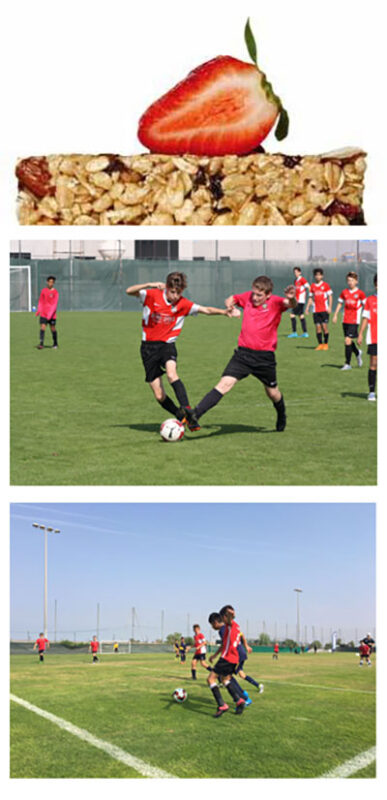NUTRITION
Special Needs Of The Young Player
Football enjoys one of the highest participation rates for children and adolescents around the world, offering the benefits of aerobic fitness, skill development, and a team environment without the risks of a contact sport. Girls and boys can start playing at an early age, often with modifications to rules, playing time, and pitch sizes. Football continues as a popular sport from junior school through to college or university levels. Those with particular talent may be chosen for scholarships to youth development programs for football. Others continue to play football for recreation, fitness or social contact.
Training issues
Depending on the age and calibre of the young player, “training” may range from the weekly match to structured squad sessions. The goals of training may range from simply having fun through to a progressive program aimed at developing the skills and specific fitness and physique required to play football at higher levels. Talented young players may be invited to train with a senior squad, often in addition to their involvement with their primary team. Whatever the long term ambition, the focus should be very firmly on fun and on the development of motor skills. Aerobic fitness will develop naturally over time.
Competition issues
At junior levels, players may follow modified rules, which alter the duration of their play and the activity patterns of the game. Young players typically play in a weekly competition, over a short competition season. Players who are being developed towards a potential career in elite or professional teams, however, may play in a number of teams or competitions. This can lead to heavy physical demands on these young players and parents, teachers, and coaches should be aware of the risks of playing too many games.
Special issues and eating strategies:
Parents are often roped in to become the coaches and trainers of under-age teams. They may accept these positions without an appreciation of either the physical demands or the nutritional needs of football or young people, and without any resources to implement a team program. It is important that education resources are made available to these coaches so that they can guide young players into good habits. Players should be encouraged to develop good nutritional habits at an early age. Adolescence is a time marked by an increased independence in food choice and food preparation. The promise of sporting success may provide strong motivation to develop good dietary practices. Information and the example of good role models may help a young person to develop sound eating practices in their everyday (training) diets as well as the specific preparation for matches.


